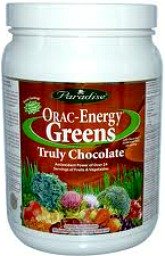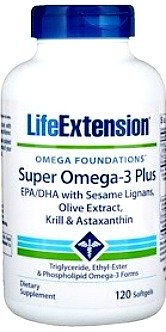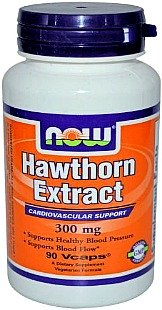Aspirin and heart disease: Reduce the risk of aspirin side effects by turning to natural aspirins
There is a way to reduce the risk of aspirin side effects and still get all the benefits, when it comes to heart disease, by turning to natural aspirins.
Aspirin is made from acetylated version of salicylic acid which is further metabolised in the body. Salicylic acid is natural anti-inflammatory agent which is used in treatment of several ailments.
New studies have concluded that taking aspirin on regular basis, once to twice per week, may reduce the risk of cancer, heart disease and heart attack. However, despite its benefits, there are couple of aspirin side effects associated with high doses and frequent use.
ASPIRIN AND HEART DISEASE - USES
Aspirin can be used to:
- Ease the pain and reduce swelling
- Treat inflammatory conditions
- Decrease the risk of blood clot formation and heart attack
- Prevent strokes
- Treat Headache and Fever
It works by inhibiting production of prostaglandins and thromboxanes which decreases the risk from inflammation of the heart muscle. Since it also thins the blood, it prevents formation of blood clots and lowers the risk of heart attack, by preventing platelets from sticking together.
ASPIRIN AND HEART DISEASE - SIDE EFFECTS
Although it can be very helpful, you shouldn't take high doses or consume it too often, in order to avoid aspirin side effects. This includes:
- Bleeding
- Impaired inflammation reaction
- Upset stomach
- Low blood glucose levels
- Kidney and liver damage
- May cause Reye's syndrome in children and young adults
- Cause Gout by increasing blood uric levels
- Anemia
- Stomach irritation and blood in stool
The drug shouldn't be taken by pregnant or breast-feeding women. It may increase the risk of bleeding in mother and child, prolong pregnancy as well as affect the newborn baby since it can be transported through breast milk.
Due to its blood thinning properties, it shouldn't be taken two weeks prior to the surgery, as it may increase the risk of bleeding.
When it comes to other aspirin side effects, if you have medical conditions such as asthma, stomach ulcers, allergies, liver problems or you drink too much alcohol, consult with your doctor, before taking the drug.
ASPIRIN AND HEART DISEASE - INTERACTIONS
Besides side effects, bad side of aspirin, is the fact that it can interact with wide range of medications as well as supplements. This includes:
- Non-steroidal anti-inflammatory drugs such as Ibuprofen
- Inflammatory hormones such as cortisol and progesterone
- Anti-coagulant drugs such as Warfarin and Heparin
- Antiplatelet medications
- Alcohol and antacids
- Some high blood pressure drugs such as ACE inhibitors
- Few viral vaccines such as the one used to treat chickenpox
These is not a complete list of medications which may interact with aspirin. For more informations, talk to your doctor.
When it comes to supplements and herbs, it may interact with fish oil, astaxanthin, ginkgo, garlic, dong quai, feverfew, ginseng, turmeric, ginger, bilberry, kava kava, echinacea, horse chestnut, fenugreek, red clover, chamomile, valerian and motherworth.
These herbs can, interfere with blood clotting mechanisms and inflammation. As a results, they can improve or weaken the effect of the drug and potentialy cause more serious aspirin side effects. However, this is most profoundly experienced with herbal aspirins such as meadowsweet and willow bark.
ASPIRIN AND HEART DISEASE - HERBAL ASPIRINS
Herbal aspirins are nature's respons to man made aspirin. While the drug is made from acetylated version of salicylic acid, these herbs contain salicin which is further metabolised in the body.
One of salicin metabolites is salicylic acid. It works in same way as the drug, exhibiting the same effects and benefits. However, the risk of side effects is somewhat reduced, while taking the herbs since the body tolerates them better.
If you are interested in aspirin and heart disease connection or you want to learn more about herbal aspirins such as meadowsweet, willow bark and wintergreen, check the herbs section for more informations about salicin and its effect on the cardiovascular system.
- Heart Healthy Diet: Simple Tips and Guidelines
- Learn everything you need to know about heart healthy diet and find the right one for you. Implement few simple tips for immediate benefits.
- Heart Healthy Foods: How to Get the Most from Them
- Heart healthy foods can improve cardiovascular system function. Foods good for the heart are bursting with vitamins, minerals and rejuvenating phytochemicals.
- Herbs for the Heart and Cardiovascular System
- You have heard for hawthorn and garlic but there are few other herbs for the heart which can help in treating heart disease, naturally.
- The Best Heart Health Supplements
- Besides fish oil, there are several heart health supplements which can be useful. This includes Coenzyme Q10, Salicin, vitamin D3 and few others.
- Heart Healthy Spices
- Although there are many heart healthy spices out there, each of them can help prevent and treat heart disease in its own way, thanks to different types of flavonoids in these heart spices.
- Stress and Heart Disease: How are They Connected
- Stress and heart disease are closely related. In order to decrease the risk of heart problems, we have to learn how to handle the stress and treat its consequences, if we are unable to avoid it.
- Cardio Exercises for the Heart and Cardiovascular System
- Cardio exercises are vital part of natural heart disease treatment. However, which kind of heart exercise you should preform, varies from person to person.
- Good vs Bad Cholesterol: How to Improve Cholesterol Values
- Good vs bad cholesterol conflict is somewhat misunderstood. There is no good or bad cholesterol but only high or unbalanced cholesterol.
- Good Fats vs Bad Fats: Nutritional Facts and Guidelines
- What is the real truth when it comes to good fats vs bad fats? How much dietary fats should you consume daily and what are the best food sources of healthy fats?
- High Blood Pressure Remedies
- High blood pressure remedies range from tips and lifestyle modification to herbs and supplements. However, the method that works for someone else, may not work for you.
- Normal Heart Rate: How is Regulated and Influential Factors
- Normal heart rate varies from person to person. Although, age affects resting heart rate, there are many other factors that can raise or decrease heart rate.
- How to Lose Fat: Overlooked Tips for Weight Loss
- How to lose fat is surely one of the most intriguing questions for so many people. However, the answer is very simple. Eat healthy foods, perform fat burning exercises and take care of your hormones.
- Hormones and Heart Disease Connection
- Don't neglect hormones and heart disease connection. If you want to treat or prevent heart disease you have to balance your hormones.
- Heart Disease and Immune System Connection
- Heart disease and immune system connection is often overlooked, while trying to improve cardiovascular system function. However, there are several things you can do to change this.
- Dental Health Heart Disease Connection: Facts and Tips
- Dental health heart disease connection is one of three overlooked factors, along with hormones and immune system. However, with smart and effective approach we can change this.
- Causes of Heart Disease
- There are many causes of heart disease and factors that can increase or decrease your risk for developing heart related problems. Check how to turn the tide in your favour.
- Symptoms of Heart Disease
- There are few main symptoms of heart disease. Find out which are they, how to recognize them as well as my personal experience with some of them.
- Diagnosis of Heart Disease
- Accurate diagnosis of heart disease is the first step toward recovery. You can't start with treatment before you know what kind of disease you have, obviously.
- Treatment for Heart Disease: Medications and Surgeries
- Standard treatment for heart disease consists of surgeries, medications and devices. Which one is right for you, depends on your condition.
- Heart Disease Blog
- This is a blog about natural remedies, personal stories, helpful herbs and supplements, workout program as well as other tips and facts which may help people faced with heart disease.
- Contact Me
- Ask questions and leave comments about this site here.
- About the Author of Heart Health Guide
- About the author of Heart-health-guide.com website.
- Heart Health Guide Sitemap
- This is sitemap of Heart Health Guide.com. If you want to get better overview of informations on this website, you can get it here.
Copyright © - Heart Health Guide - All Rights Reserved.



